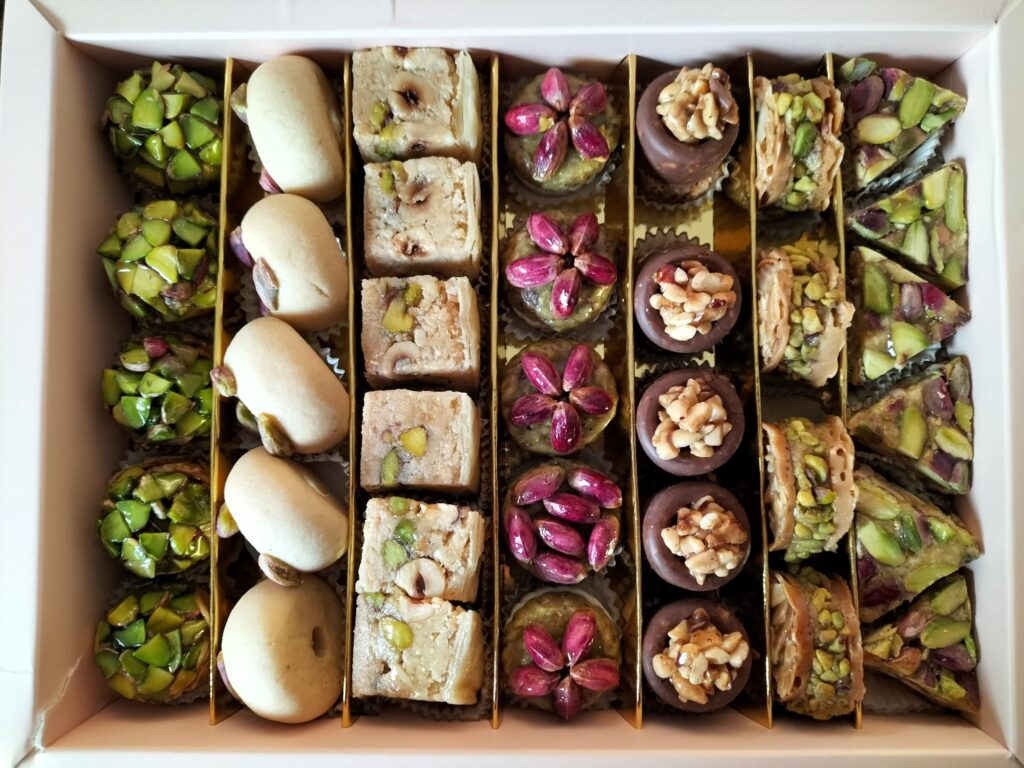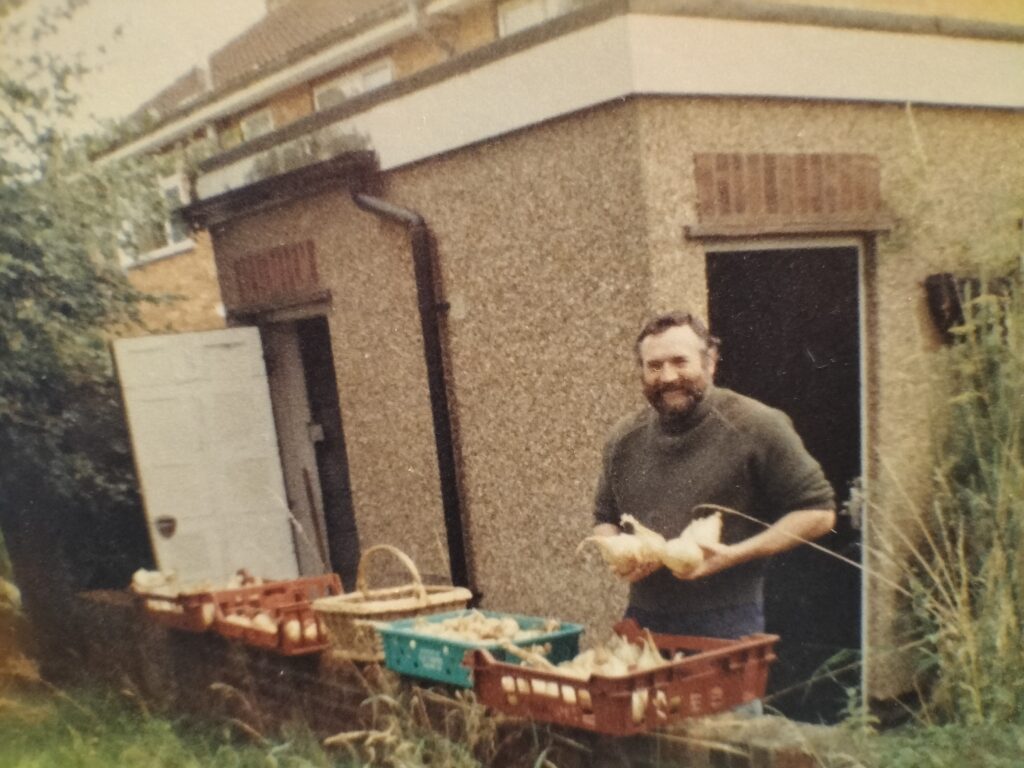I was a very clumsy child, covered in cuts and bruises, dashing from one activity to the next without taking much notice of my body. I still have this tendency, and earlier this summer I cut my hand on a glass while rushing to clear it away. My friend made a big fuss of the blood slowly seeping out of my hand, while I was trying to ignore it. She insisted on getting me a plaster, saying that my bodily integrity really mattered. Her genuine concern for my flesh deeply touched me – I tend to view my body as an unwelcome necessity that carries around the really important parts of me: my mind and my spirit – but I am coming to realise that it is important to integrate all three, and today’s Gospel story can help us with that.
One of the earliest Christian heresies was gnosticism, which considered material existence to be flawed or evil, and got around the incarnation by saying that Christ only temporarily occupied a human body but was not fully one with it. This position is understandable, it’s hard to believe that a messy human body like ours with its conflicting impulses could ever have been one with perfect divinity. But this is a mystery of our faith.
Although gnosticism was rejected as heresy, it, and other philosophies that hold to a strict division between matter and spirit, continues to influence us. This is not helped by Paul’s use of the word sarx which can mean both flesh and sinful human nature, contributing to the impression that the body is inherently sinful and that sins committed with our bodies are much worse than other sorts of sins. But 1 Corinthians 6:19 tells us that our bodies are a temple of the holy spirit.
This encounter between Mary and Elizabeth is remarkable for a number of reasons. For one thing, it is one of those rare instances in scripture where we overhear two named women talking about something other than a man. It is also interesting because of the focus on these women’s pregnant bodies.
In the culture of the time, women’s bodies were deeply problematic. Mary could have been killed if her virginity was even called into question while Elizabeth would have lived as a pariah for failing her one purpose in life: providing her husband with a son. With the news of their respective pregnancies, their lives were turned upside down and their bodies would never be the same.
Incarnation means taking on flesh, and Mary’s body was essential for the enfleshment of Christ; she sheltered him in her womb, fed him through her placenta, and comforted him with the sound of her voice and the movements of her body. But as well as giving her body as a place for God to be made man, Mary’s mind and her spirit were also part of this experience; Mary said yes with every part of her being – she became the mother of God with her body, mind and spirit.
And then there is the second pregnancy in this narrative, Elizabeth’s. An older woman, well-past her sell-by date, who assumed that she’d go to the grave barren, suddenly finds herself pregnant after an angel visits her husband. I wonder how that felt? On the one hand, she must have been overjoyed to become pregnant, the shame of her childlessness finally taken away, but on the other hand it must have been overwhelming to contemplate pregnancy at this late stage of life.
After being visited by the Angel Gabriel and overshadowed by the Holy Spirit, Mary rushes off to visit her relative Elizabeth. When Mary greets Elizabeth, the holy spirit fills her too, and she gushes forth words of blessing. Just note that both these women’s bodies had become the Spirit’s dwelling place, while the official dwelling place of the spirit – the central area of the Jerusalem temple – was strictly off-limits to women.
Elizabeth exclaimed that upon hearing Mary’s voice, the child in her womb leapt for joy. The unborn John already responded to the barely formed Jesus – what a remarkable connection. I wonder what it was like for the four of them during those three months they spent waiting together. I imagine it was a precious, blessed time that resourced both women for what was to come. How hard it must have been for Mary when Elizabeth came to term, and she had to return to Nazareth to face the music over her increasingly visible pregnancy.
Mary could easily have become ashamed of her body, as people made insinuations and assumptions, but the annunciation was unequivocal, and I imagine she held on tight to that during the weeks and months ahead. And, of course, it helped that her fiancé Joseph, with a little angelic help, had decided to believe her story.
At the time, female bodies were considered inferior and frequently ritually unclean. Yet we see the value that God puts on the female body in that he was willing to be incarnated in one. We also see the value that God puts on older women’s bodies, menopausal and otherwise on the scrap heap – he chose one of these bodies to birth John the Baptist, a pivotal figure in the life of Christ and the story of the church. Female bodies, older bodies and by extrapolation all bodies – irrespective of ethnicity, disability, or any other category we might like to think of – are precious to God.
The value of bodies is taken up in the Magnificat, the song of praise that Mary sings in response to Elizabeth’s blessing:
He has brought down the powerful from their thrones,
and lifted up the lowly;
he has filled the hungry with good things,
and sent the rich away empty.
The powerful tend to rise to great heights by crushing the bodies of the lowly. In the most blatant expression of power over others, slavery, human bodies are bought and sold as commodities – think of the wealthy elite of the Roman Empire, the enrichment of Colonial Europe at Africa’s expense or modern-day slavery in the form of human trafficking, and bonded and forced labour. In the Magnificat, we see a reversal of fortunes: the powerful are brought down and the lowly are lifted up – the well-fed bodies of the rich are sent away empty, while the hungry bodies of the poor are filled with good things. These vulnerable bodies matter to God and they should matter to us too.
Do we value the bodies of the people who work for us? Cleaners and construction workers, migrant fruit pickers, child labourers on cocoa farms, and the people who mine the conflict minerals in our smartphones? If we care for their bodies, we will take an interest in where the things we buy come from and how they are produced.
Christ’s body was knitted together in Mary’s womb out of atoms most recently incarnated in plants and animals, and before that they were found in soil and minerals. In the incarnation of Christ, all forms of matter are thus sanctified and so all these bodies in their different forms deserve our respect and honour. So when we inevitably take the life from other beings to sustain our own lives, I believe we should do so with respect and gratitude, rather than over-consuming or wasting them.
Christmas is a time of feasting, and this is as it should be – but as we celebrate the incarnation of Christ, let’s be mindful of what our celebrations cost the bodies of other people, plants, and animals and make efforts to reduce that cost.
Christianity has been called a religion of the flesh, and this is most explicit in Christ’s command to eat his flesh and drink his blood at the communion table. Beyond this, it is no accident that our two most important sacraments, baptism and communion, are whole being experiences – with body, mind and spirit agreeing together to turn to God. And think of the comfort we can gain by lighting a candle to pray when words fail us. Our bodies can help us when our minds and spirits are exhausted – a friend of mine who feels this way is building a labyrinth in her garden, so that at least her body can pray as she walks around it.
Christ taking up residence in Mary is an archetype of incarnation – and although it was a one-off event, it also gives a pattern for us to follow. We receive the same call as Mary to incarnate Christ with all of our being: body, mind and spirit. To bring him forth into the world.
I wonder what practise might help us with this? Perhaps at the times when we are most aware of our bodies – when they fail us or when they bring us joy – at those times, perhaps, we might pause and thank God for dwelling in us, and ask him to take up more space in our being.




